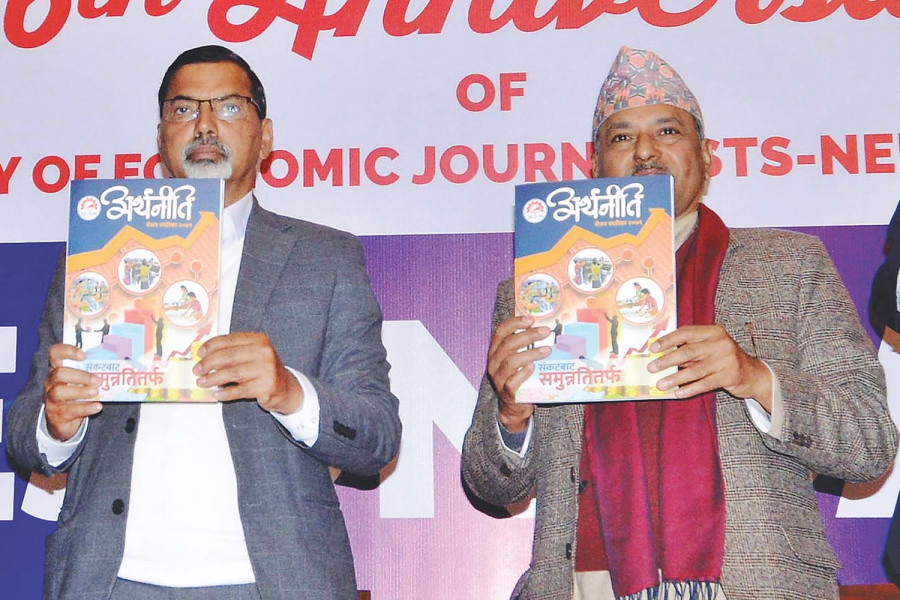Money
Finance Minister denies Nepal is passing through an economic crisis
The private sector urges the government to be serious, but the government says let’s not spread a false message.
Post Report
Finance Minister Janardan Sharma, on Thursday, said that the country is not passing through an “economic crisis” as portrayed by the private sector.
On Tuesday, the Federation of Nepalese Chambers of Commerce and Industry, the key private sector body, had warned that the country is in a financial crisis and the government is least bothered about the situation.
“It’s not quite at that stage as is being said by the private sector,” said Sharma, speaking at a programme organised on the occasion of the 26th anniversary of the Society of Economic Journalists Nepal (SEJON).
He urged experts and stakeholders not to call the current situation a “crisis”. “The economic indicators are improving. The construction work will speed up which would increase the capital expenditure.”
The central bank’s data also shows that the current economic condition of the country is improving, said Sharma, expressing his dissatisfaction with some individuals and experts who are vocal about the economic situation of the country.
“Since the economy is facing various pressures and challenges rather than a crisis, let's think and discuss the solutions now. Let’s not spread a false message,” said Sharma.
Nepal Rastra Bank governor Maha Prasad Adhikari said the world’s economies are under stress. "But, Nepal's situation is not that bad."
"Compared to other countries in South Asia, except India, Nepal's economy is stable. But there are challenges too,” said Adhikari.
In its 55 years of history, the country for the first time encountered foreign exchange pressures with reserves depleting by $2.34 billion within a year due to external reasons, he added.
Adhikari said the central bank is always ready for discussions to find solutions to the problems.
Adhikari said the restrictions on imports are not for forever. Though the import ban on certain goods has affected revenue earnings, in many cases, it is positive.
Gagan Kumar Thapa, general secretary of the Nepali Congress, said the incoming leadership should have courage to face the economic situation of the country. “We are in an unprecedented crisis and the problem would be resolved, only if we work with determination,” he said.
"It is important for the next prime minister to understand the seriousness of the current situation," said Thapa, adding that the government should conduct open and transparent discussions with different private sector players and shouldn’t ignore them.
Shekhar Golchha, president of the Federation of Nepalese Chambers of Commerce and Industry, said that he had not seen any leader who is willing to cooperate with the private sector.
“Why is there a trend of being afraid and hesitant to cooperate with the private sector even though it is known that economic development is not possible without the participation of the private sector,” Golchha asked.




 9.7°C Kathmandu
9.7°C Kathmandu














